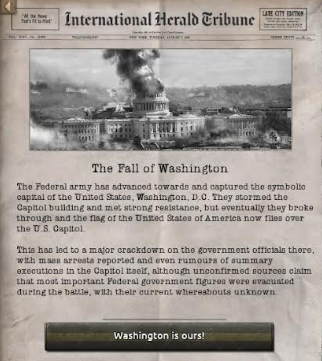Thanks for the new chapter and a look at the intrigues going on.
I must say, the entire atmosphere of the story makes me shudder. Too many parallels to what is going on in the U.S. right now. That discussion between Prescott and the soldier certainly was along those lines.
It appears Herbert Hoover is as inept in this AAR as he was in the original timeline, especially when it comes to thinking about his own coup (after he already helped MacArthur become a dictator). If he doesn't have any military might, his coup will end before it gets started.
I must say, the entire atmosphere of the story makes me shudder. Too many parallels to what is going on in the U.S. right now. That discussion between Prescott and the soldier certainly was along those lines.
It appears Herbert Hoover is as inept in this AAR as he was in the original timeline, especially when it comes to thinking about his own coup (after he already helped MacArthur become a dictator). If he doesn't have any military might, his coup will end before it gets started.
- 2















































